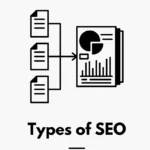- admin
- Introduction to SEO
- 0 Comments
- 149 Views
A search engine works like a librarian for the internet, helping you find the information you need among billions of web pages.
When you type in a query, the search engine scans its vast index of web pages, much like a librarian searching a catalog.
It looks for relevant matches to your query based on keywords, content, and various other factors. The ultimate goal is to provide you with the most relevant and useful results as quickly as possible.
To achieve this, search engines follow a few general steps:
- Crawling: The search engine uses bots to visit web pages and gather information.
- Indexing: The gathered information is organized and stored in a massive database.
- Ranking: When you make a search, the search engine ranks the indexed pages based on relevance, using complex algorithms.
- Displaying Results: Finally, the search engine displays the most relevant results on the search results page.
By following these steps, search engines help users efficiently navigate the vast amount of information available online.
Crawling
Crawling is when search engines send out little robots, known as spiders or crawlers, to discover new and updated web pages.
These robots follow links from one page to another, exploring the web non-stop.
What You Can Do:
- Clear Site Structure: Make your website easy to navigate so the robots can find all your pages.
- Sitemap: Create and submit a sitemap to guide the robots.
- Fix Broken Links: Make sure there are no dead links, which can confuse the robots.
Indexing
After crawling, the search engine analyzes and stores information about your web pages in a huge database called an index.
This includes all the important content and keywords from your site.
What You Can Do:
- High-Quality Content: Write useful and original content.
- Use Keywords: Include relevant keywords naturally in your content and metadata.
- Optimize Media: Add descriptive tags to images and videos.
Ranking
Ranking is how search engines decide the order of results.
They use complex algorithms to figure out which pages are most relevant and useful based on many factors like quality and user interaction.
What You Can Do:
- Get Backlinks: Earn links from other reputable sites.
- Improve Page Speed: Make sure your site loads quickly.
- Mobile-Friendly: Ensure your site looks good and works well on mobile devices.
Displaying Results
When you search for something, the search engine shows you the best matches from its index. These results appear on the Search Engine Results Page (SERP), often with extra features like snippets, images, and maps.
What You Can Do:
- Use Structured Data: Add structured data to your site for rich snippets.
- Write Compelling Meta Descriptions: Create engaging descriptions to attract clicks.
- Optimize for Local Search: For local businesses, update and optimize your Google My Business profile.
By understanding and addressing each of these steps, an SEO specialist can help a website appear higher in search results and attract more visitors.




